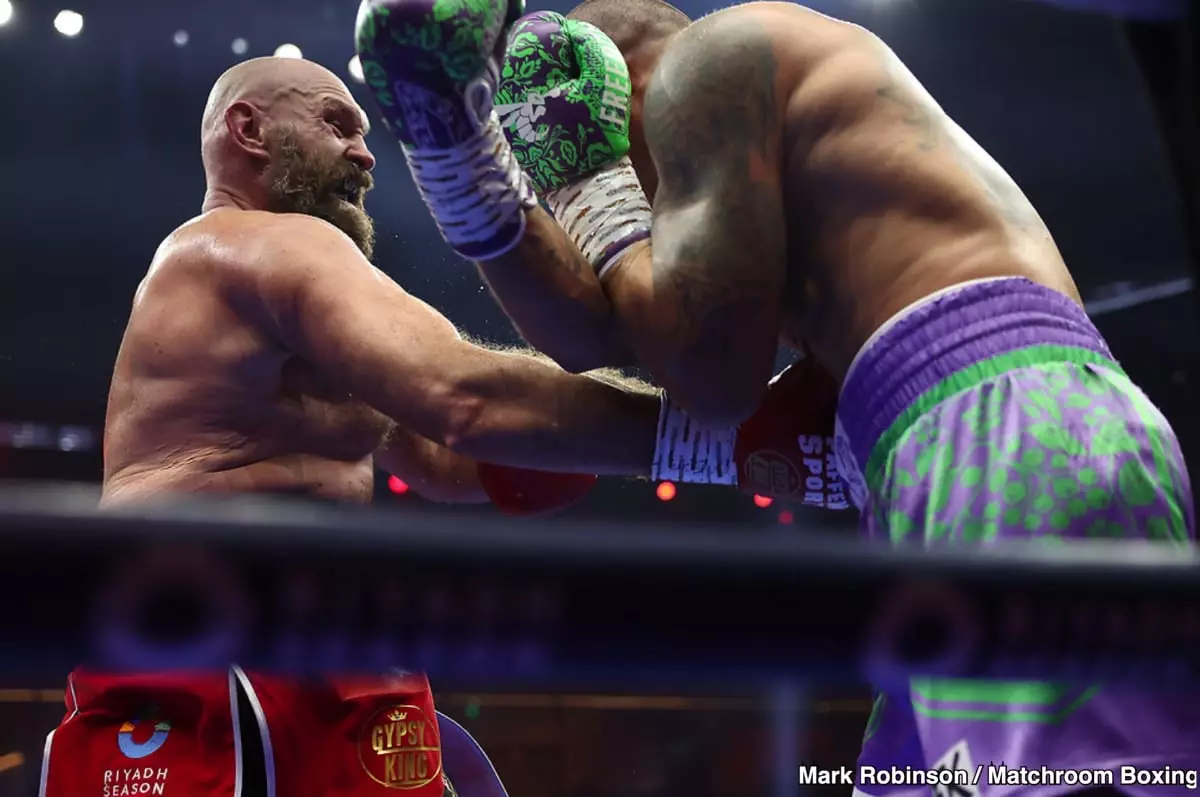In a recent encounter that had boxing fans on the edge of their seats, Turki Alalshikh’s candid commentary on the rematch between Oleksandr Usyk and Tyson Fury has stirred considerable discussion. Alalshikh, known for his blunt honesty, confidently declared that Usyk had won the fight by a clear four-round margin. His willingness to openly acknowledge Usyk’s victory contrasts starkly with the defensive stance of Fury’s camp, which has often been perceived as melodramatic and unwilling to accept defeat. This divergence in responses invites reflection on the post-fight conduct of athletes and their teams, particularly when faced with contentious results.
The match, held at the Kingdom Arena in Riyadh, ended in a unanimous decision favoring Usyk, with all judges scoring the bout at 116-112. This outcome marks a significant event in Usyk’s career, as he successfully defended his unified titles against a formidable opponent. However, the fight’s portrayal of Fury, who appeared to have neglected his conditioning, raises critical questions about his preparations. Observers noted his visibly flabby physique and questionable fight readiness, which undermines the image of a fighter who supposedly dedicated three months to training. Such discrepancies lead one to wonder about the effectiveness of Fury’s camp and his level of commitment going into such a high-profile bout.
Fury’s reaction in the aftermath of the fight, which includes a denial of any serious damage inflicted by Usyk, further complicates the narrative. His assertion that he was barely touched during the fight, despite moments of observable vulnerability, paints a picture of denial. Eyewitness accounts from fans and commentators suggest otherwise; Usyk successfully stunned Fury multiple times, creating a sense of uncertainty as to Fury’s condition throughout the match. This raises an essential dialogue about the nature of sportsmanship and the integrity of acknowledging one’s performance, regardless of the outcome.
Looking ahead, Alalshikh’s hopes for upcoming fights involving Usyk and potential matchups for Fury reflect the excitement and unpredictability of heavyweight boxing. He advocates for Usyk’s showdown with Daniel Dubois, should Dubois emerge victorious in his next fight. Furthermore, the suggestion of a clash between Fury and Anthony Joshua tantalizingly hints at the potential for revitalizing the heavyweight division amidst burgeoning rivalries. Such encounters not only promise to capture the public’s attention but also challenge the bounds of each fighter’s legacy.
In sum, the rematch between Oleksandr Usyk and Tyson Fury transcends mere statistics; it speaks volumes about preparation, resilience, and post-fight conduct. Turki Alalshikh’s stark assessment serves to highlight the urgent need for athletes to embrace both victory and loss with grace. The implications of this bout will undoubtedly reverberate in the boxing community, setting the stage for exciting opportunities ahead, and reminding fans that in the arena of combat sports, each fight tells a far more personal story than what is recorded on the scorecards.


Leave a Reply